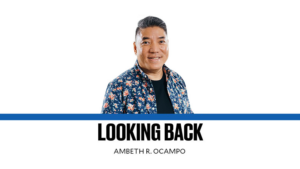At the signing of the joint circular between the Department of Education (DepEd) and the Department of Budget and Management (DBM) early this month, P1 billion was allocated for the establishment of child development centers (CDCs) in low-resource municipalities. Marginalized children who lack access to CDCs are now at the forefront of government support. These children represent the neediest among the 4.5 million children ages 3 to 4 who miss out on vital opportunities for holistic development.
Ninety percent of a child’s brain develop before the age of 5. When children grow with proper nutrition, nurturing care, and early learning opportunities, they learn well. These early experiences can shape who they become. Early childhood determines the future success of a child in school and beyond. Research shows that participation in early education lowers the start age in school, decreases the likelihood of dropping out, and increases income in later years. This means that early learning translates to better learning outcomes.
I have been participating in education policy discussions as a member of the standing committee on early childhood care and development (ECCD) and basic education of the Second Congressional Commission on Education or EdCom II. The findings of EdCom II for ECCD are dire. One out of 4 children under the age of 5 are stunted. Only 36 percent of barangays have a CDC. A mere 21 percent of children aged 3 to 4 are attending ECCD programs. Malnutrition further exacerbates these challenges, limiting children’s potential.
In EdCom II, we endeavored to amend the 2013 Early Years Act to make ECCD programs more accessible. To make ECCD universal, we worked hard to include critical provisions in the ratified ECCD System Act. This bill aims to establish more CDCs, give proper teacher training and professional development, and integrate health and nutrition services. There must be at least one CDC in each barangay. Teachers must be trained, have plantilla or permanent positions, and standard salary grades. Parents, caregivers, and health workers must be engaged in early stimulation, care, growth, and development. This bill strengthens the participation of the community in raising curious, confident, and resilient learners. The participation of the private sector is vital to achieving universal ECCD access. Incentives for donations to public CDCs aim to encourage support for this cause.
I have been helping to advocate for ECCD through the nonprofit that I set up and of which I am president, the Knowledge Channel Foundation, Inc. It is my mission to ensure that no child is left behind. We have been diligently producing curriculum-based video lessons for pre-Kinder up to Grade 10. Our engaging educational shows for K-3, “Kinder Yes,” “Wikaharian,” “Ready, Set, Read,” and “MathDali” build foundational skills in literacy and numeracy.
Our initiatives extend beyond children by providing learning materials for teachers and caregivers. We have shows for health and nutrition in the first 1,000 days of life: “Dok Ricky Pedia,” and “I Love You 1000.” In addition, we have “TalkEd” on responsive caregiving, health, and nutrition for parents and caregivers.
We train the community of child development workers and teachers, parents, health-care providers, and local government officials through KCare, a program that introduces the nurturing care framework. We equip people involved in ECCD with the skills and resources they need to help children develop optimally.
It truly takes a village to raise a child. I am honored to contribute to making quality education accessible and inclusive. The DepEd-DBM joint circular complements the ECCD System Act and embodies our collective advocacy for ECCD. The establishment of CDCs in the most resource-poor communities is a step toward nation building, giving disadvantaged children an equitable chance to have better education. I am excited for more Filipino children to be healthy, well-nourished, and eager to learn. This substantial investment in our youngest citizens will build a brighter future and a stronger nation.
—————-
Rina Lopez is the co-founder, president, and executive director of the Knowledge Channel Foundation; and is a member of the EdCom II standing committee on early childhood education and development and Basic Education.


